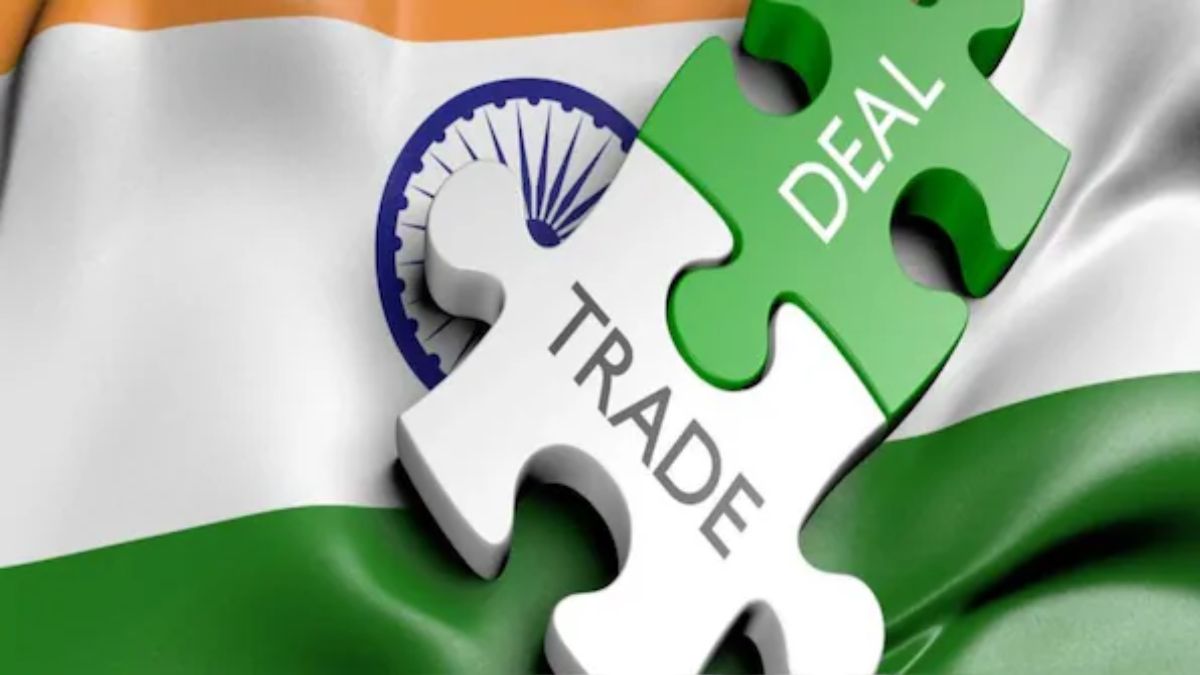From a shared colonial past to a dynamic, forward-looking partnership, India-UK relations have undergone a strategic transformation under Prime Minister Narendra Modi’s leadership. In recent years, bilateral ties have evolved beyond symbolism with concrete progress across trade, defence, education and technology. Here are seven key developments that have defined India-UK relations during Modi’s tenure.
Strategic partnership and Roadmap 2030
India and the UK elevated their bilateral ties to a Comprehensive Strategic Partnership in 2021, guided by the ambitious Roadmap 2030 which covers cooperation across trade, defence, education, health and climate action. High-level political engagement has underpinned this partnership with frequent meetings between Prime Minister Modi and UK counterparts including Boris Johnson, Rishi Sunak, and Keir Starmer.
Other key engagements include President Droupadi Murmu’s visit to London for Queen Elizabeth II’s funeral, Vice President Jagdeep Dhankhar’s attendance at King Charles III’s coronation and PM Modi’s meetings with UK leaders during G7 and G20 summits. Speaker Om Birla also visited the UK in January 2025 further strengthened parliamentary exchanges.
Free Trade Agreement in focus
India and the UK have long maintained strong economic ties, underpinned by institutional mechanisms like the India-UK Joint Economic and Trade Committee (JETCO) and the Economic and Financial Dialogue (EFD). These forums have facilitated deeper trade and financial cooperation. A major milestone was the conclusion of the India-UK Free Trade Agreement (FTA) and a ‘Double Taxation Avoidance Convention’ in May 2025 after three years of negotiations. The FTA, one of India’s most comprehensive covers 26 chapters including goods, services, digital trade, IPR and labour standards. Bilateral trade reached £43 billion in 2024, with the UK being the 6th largest investor in India (FDI of $35 billion) and nearly 1,000 Indian firms operating in the UK. The Indian diaspora and corporate presence in both countries have further bolstered this growing economic partnership.
Bilateral trade crosses $55 billion
Trade volumes between the two nations have seen remarkable growth. By 2024, bilateral trade surpassed $55 billion, driven by growing demand for Indian goods and services in the UK and rising British exports to India. Both countries have also committed to increasing trade by investing in innovation, digitalisation, and sustainable practices.
Robust investment flows
The UK remains a major foreign investor in India with cumulative FDI exceeding $36 billion. British firms have expanded operations in India’s manufacturing, services and fintech sectors. Conversely, over 1,000 Indian companies now operate in the UK, creating jobs and contributing majorly to the British economy. The presence of Indian firms like Tata, Infosys and Wipro in the UK showcases the depth of this economic engagement.
Defence and technology cooperation
India and the UK share a broad defence relationship encompassing joint military exercises, defence technology cooperation, defence education, procurement and promotion of the Make in India initiative. Key joint exercises include Exercise Konkan 2023 (naval), Cobra Warrior 2023 (air), Ajeya Warrior 2023 (army), and participation in Tarang Shakti 2024. Regular exchanges of subject matter experts further strengthen operational synergy.
In science and innovation, the UK has become India’s second-largest international research partner with joint projects worth £300–400 million. During the India-UK Science and Innovation Council (SIC) held in April 2023, both sides signed MoUs in cutting-edge areas such as quantum tech, AI, clean energy and pandemic preparedness. The two countries also launched the India-UK Net Zero Innovation Virtual Centre, focused on industrial decarbonisation and green hydrogen solutions. India was recognised as a partner country under the UK’s International Science Partnership Fund, extending the legacy of the Newton-Bhabha partnership.
Health and education
Health cooperation between India and the UK gained momentum during the COVID-19 pandemic, particularly through the AstraZeneca–Serum Institute of India vaccine partnership, which highlighted the countries’ joint capability in addressing global health challenges.
In 2022, both governments signed the India-UK Framework Agreement for Collaboration on Health Care Workforce, facilitating training and recruitment of Indian nurses and healthcare professionals. By 2023, over 60,000 Indians were working in the UK’s NHS, making them the second-largest nationality group after British citizens.
In education, bilateral ties have deepened through growing student exchanges and institutional collaborations. Nearly 170,000 Indian students are currently studying in the UK, supported by increased visa issuances. The UK has also begun to invest directly in India’s higher education ecosystem, with the University of Southampton opening a campus in Gurugram, the first under India’s New Education Policy (NEP).
People-to-people ties
People-to-people linkages have flourished, aided by the Migration and Mobility Partnership (MMP) and the Young Professional Scheme, which allows youth from both countries to live and work for up to two years. The Indian diaspora, numbering over 1.6 million in the UK, continues to act as a cultural and economic bridge.
)